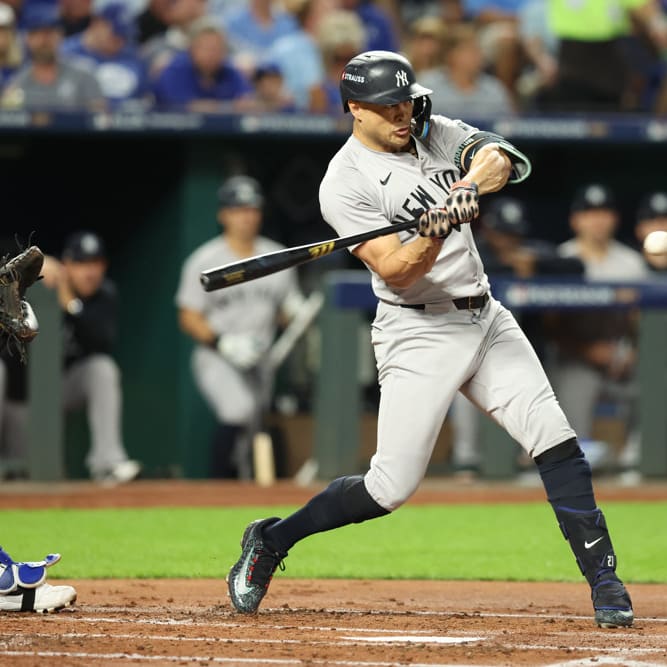'Tis the season! It is currently a balmy 11 degrees in my hometown of Chicago. The sweet smell of cracklin' winter fires wafts through the air. Bells can be heard ringing on every street corner. Naturally, it seems like an appropriate time to talk some baseball. On the holiday wish list for a number of major league teams: Masahiro Tanaka, the ace of Japan's Rakuten Golden Eagles. The right-hander, who was 24-0 with a 1.27 ERA last season, could be the best available starting pitcher on the major league market. But, his professional fate remains uncertain.
On December 16, the Office of the Commissioner of Major League Baseball (MLB) announced that it had agreed to terms with Nippon Professional Baseball (NPB) on revised protocols for the posting system shared by the leagues. The previous posting agreement between the leagues paved the way for a number of Japanese stars to make their way to MLB, including Ichiro Suzuki, Daisuke Matsuzaka and most recently, Yu Darvish. Without the posting process, MLB teams would have to wait until Japanese players reached free agency (like Hideki Matsui or Koji Uehara) after nine NPB seasons, and then they would be free to sign with any team in any country. Under the old agreement, MLB teams interested in signing the posted player would submit blind bids. The highest bidding team would then have exclusive negotiating rights with the posted NPB player over a per-determined period. Once the player and his new team
'Tis the season! It is currently a balmy 11 degrees in my hometown of Chicago. The sweet smell of cracklin' winter fires wafts through the air. Bells can be heard ringing on every street corner. Naturally, it seems like an appropriate time to talk some baseball. On the holiday wish list for a number of major league teams: Masahiro Tanaka, the ace of Japan's Rakuten Golden Eagles. The right-hander, who was 24-0 with a 1.27 ERA last season, could be the best available starting pitcher on the major league market. But, his professional fate remains uncertain.
On December 16, the Office of the Commissioner of Major League Baseball (MLB) announced that it had agreed to terms with Nippon Professional Baseball (NPB) on revised protocols for the posting system shared by the leagues. The previous posting agreement between the leagues paved the way for a number of Japanese stars to make their way to MLB, including Ichiro Suzuki, Daisuke Matsuzaka and most recently, Yu Darvish. Without the posting process, MLB teams would have to wait until Japanese players reached free agency (like Hideki Matsui or Koji Uehara) after nine NPB seasons, and then they would be free to sign with any team in any country. Under the old agreement, MLB teams interested in signing the posted player would submit blind bids. The highest bidding team would then have exclusive negotiating rights with the posted NPB player over a per-determined period. Once the player and his new team signed a contract, the posting NPB club would receive the posting fee. While not always the case, this posting fee could be a huge windfall to the NBP team, as bids for some Japanese stars exceeded $50 million.
According to Baseball Reference the 10 most expensive bids for Japanese players under the old agreement are as follows: Darvish ($51.7 million from Rangers in 2012); Matsuzaka ($51.1 million from Red Sox in 2006); Kei Igawa ($26 million from Yankees in 2006); Hyun-Jin Ryu ($25.7 million from Dodgers in 2012); Hisashi Iwakuma ($19.1 million from Athletics in 2010); Ichiro Suzuki ($13.1 million from Mariners in 2000); Kazuhisa Ishii ($11.3 million from Dodgers in 2002); Tsuyoshi Nishioka ($5.3 million from Twins in 2010); Akinori Iwamura ($4.5 million from Devil Rays in 2006); and Norichika Aoki ($2.5 million from Brewers in 2012).
The new posting system, however, is radically different. Under the new three-year deal, we've seen the last of extraordinarily high posting fees and exclusive negotiating rights. Under the new agreement, bids are capped at $20 million. Additionally, for 30 days following a posting, any MLB club willing to pay the $20 million posting fee may then negotiate with the posted player in an attempt to reach an agreement on a contract. As before, teams are only required to pay the (assumed) $20 million posting fee if they reach an agreement on a contract with the posted player.
While the previous system favored the posting NPB team, the new agreement heavily favors MLB teams and posted players for a change. With the bidding capped at $20 million, there's little incentive not to at least enter the negotiations with the posted player of Tanaka's quality since there is no penalty if an MLB club is unable to reach an agreement with him. And with less money spent on the posting fee, more money will theoretically be put into a posted player's contract, resulting in a true free agency for the posted player, which was not the case under the old agreement, where the highest-bidding MLB team controlled exclusive negotiation rights and were loath to further shell out big bucks on the posted player's contract after already paying enormous posting fees to the NPB club.
The other advantage of capping the bidding at $20 million is that not just one or a small handful of MLB teams will be able to get in the mix for posted stars. It's now conceivable that a small-market club will be able to outbid a big-market club for a posted star. This seems especially possible with Tanaka if he's posted, as top suitors like the Yankees and Dodgers would have to worry about how a big contract would impact their luxury-tax status under the last collective bargaining agreement signed between MLB and the players' association.
Herein lies the issue. Under the old posting agreement between the leagues, only four players garnered a posting fee north of $20 million. Though the $51 million bids that Darvish and Matsuzaka amassed were astronomical in comparison to most posting fees, the bidding for Tanaka was likely to match, if not exceed, those figures given his age (25 years old) and perceived talent. Under the new agreement, Tanaka's current employer, Rakuten, is caught between a rock and a hard place. If Rakuten posts Tanaka, the financial windfall it will receive will be one-third or even one-quarter less than it would have received under the expired posting agreement. But, if Rakuten chooses not to post Tanaka, it does so against the player's wishes and it risks losing Tanaka, who is a free agent eligible to sign with a MLB after this upcoming season, for nothing. In a case like Tanaka's, the new posting system is significantly better for the player and significantly worse for the team. So both the incentive for the player to go and for the team to hang on have increased. This could drive a wedge between the player and team, which we're beginning to see with Tanaka and Rakuten right now.
The deadline for Rakuten to decide whether to make Tanaka available through the posting system is February 1, though it's largely expected that Rakuten will make its decision in the very near future, as early as this week. Until then, Tanaka's fate hangs in the balance -- as do the fates of Matt Garza, Ubaldo Jimenez, Ervin Santana and more, as clubs don't want to settle on a starter until they know everyone who's available. If Tanaka is posted, it's extremely difficult to predict how successful he will be in his first MLB season, as we simply don't know how the leap across continents will impact him, both emotionally and physically. Gabe Kapler provides a detailed take on Tanaka's potential, but, as he notes, it's simply guesswork until he actually pitches in a MLB game. Additionally, Tanaka's potential MLB destination remains up in the air as well, as where he lands could have a huge impact on his value. Despite all the swirling questions, one thing is certain: if posted, Tanaka will provide an interesting decision for fantasy owners, and his story until then is a fascinating one to watch.










